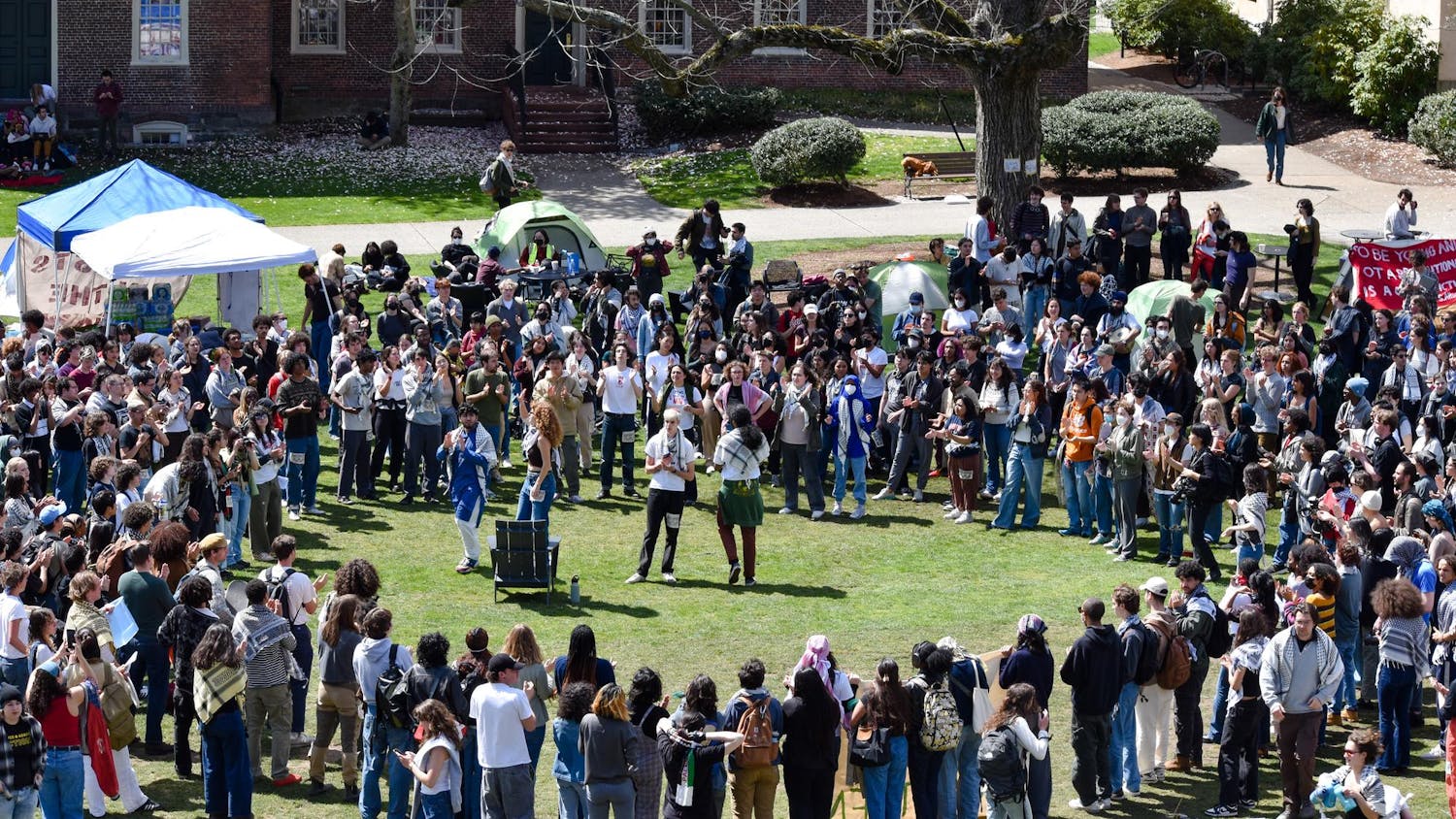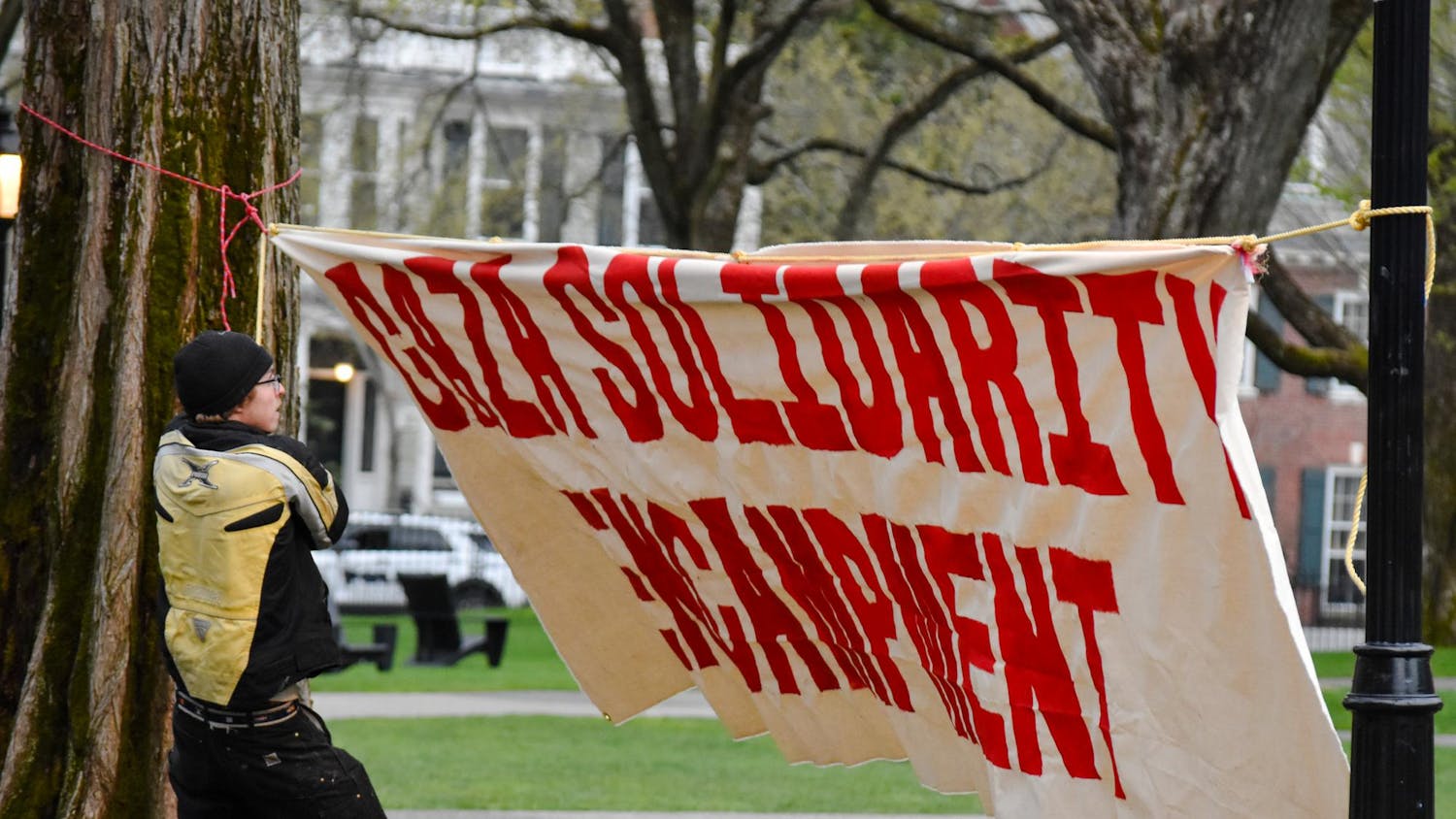Students are divided on whether or not the University should give more money to the city of Providence, according to a Herald poll conducted March 12-14. The poll also found that about one third of respondents said they were satisfied with the choice of Christina Paxson as Brown's 19th president, though around half of those polled said they had no opinion or were not familiar enough to answer. More than one third of students also cited increasing financial aid as the most important issue for Paxson to address.
Contributions to the city
Thirty-seven percent of respondents said they do not think Brown should contribute more money to the city, while 30 percent said they believe Brown should contribute more and 33 percent said they are not sure. First-years and sophomores were slightly more likely than juniors and seniors to express no opinion.
Facing a $22.5 million budget deficit and the looming threat of bankruptcy, Mayor Angel Taveras asked the University to double its annual contributions to the city earlier this year. Currently, the University contributes around $4 million to the city each year. President Ruth Simmons reportedly offered a deal in which the University would donate an additional $2 million to the city each year for the next five years, but Taveras rejected the offer.
Some Providence residents and Brown students have staged protests calling for the University to increase its contributions. Students have organized a group called Brown for Providence, which advocates increased payments to rebuild the University's relationship with the city.
To date, the city and the University have not reached a compromise, and the issue may be handed to President-elect Christina Paxson when she takes office later this year, though President Ruth Simmons has expressed hope that it will be resolved prior to the end of her tenure.
Satisfaction with Paxson
A majority of students did not express an opinion on Paxson's selection as the University's next president, with 34 percent stating they have no opinion and 20 percent saying they are not familiar enough to answer. Of students who did express an opinion, most support her selection, with 42 percent of respondents saying they are very or somewhat satisfied and only 4 percent saying they are very or somewhat dissatisfied.
First-years and sophomores were slightly more likely to say they have no opinion.
The University announced Paxson's selection March 2, and she will take office in July after Simmons steps down. Paxson currently serves as the dean for the Woodrow Wilson School of Public Policy and International Affairs at Princeton, where she modified the undergraduate concentration requirements, opened the program up to all undergraduates by eliminating selective admission and promoted fundraising for the school's endowment.
Shaping priorities
A plurality of students - 38 percent - said increasing financial aid was the most important issue for the next University president to focus on once she takes office. These results were in line with a similar question regarding general University priorities last year. In a poll conducted by The Herald last spring, 39 percent of student said financial aid should be the University's top priority.
Other percentages remained roughly the same as the question posited in last spring's poll, though the number of students who said they supported building on-campus residence halls declined, dropping from 10 percent last spring to 6 percent.
Around 18 percent of students listed renovating on-campus housing as the most important issue for Paxson to focus on, followed by around 9 percent who said they supported hiring more faculty and another 9 percent who supported improving classrooms and labs. Five percent advocated improving food options, and 4 percent said they supported improving athletic facilities.
University issues
Fifty-seven percent of students said they thought need-blind admissions for international and transfer students should be a higher priority for the University, while 21 percent said they did not think it should be a higher priority and 22 percent said they were unsure. Currently, the University is only need-blind for domestic first-year students.
The majority of respondents - 58 percent - reported that they receive enough aid or do not need any. Meanwhile, 22 percent said they do not get enough aid and have taken out external loans, while 20 percent said they do not get enough aid but have not taken out external loans. Only 0.4 percent of students said they receive too much aid.
The University has also been working to expand its medical, graduate and professional programs under Simmons' tenure. Around 72 percent of students said they approved of this expansion, with 38 percent strongly approving of the expansions and 35 percent somewhat approving. Fourteen percent of students responded that they disapproved of expanding graduate and professional programs, 10 percent said they had no opinion regarding the changes, and 3 percent were not familiar enough to answer.
Recently, the University began discussing offering gender-neutral housing for first-year students after the administration received a proposal submitted by the student group GenderAction. A majority of students responded in support of gender-neutral housing for first years, with 34 percent saying they strongly agree and 25 percent saying they somewhat agree. Twenty-three percent said they had no opinion, 13 percent said they somewhat disagree and 6 percent said they strongly disagree. The issue will be brought before the Corporation, the University's highest governing body, in May.
The poll results show that students resoundingly support Simmons' tenure in office as a whole, with 81 percent of students responding that she contributed to their Brown experience in a positive way. Seventeen percent said Simmons had little to no impact on their Brown experience, and only around 2 percent said she impacted their experience in a negative way.
Student concerns
Forty-nine percent of students reported that their friend groups do not mainly consist of individuals who share their socioeconomic status, while 44 percent said that they do and 7 percent expressed no opinion. Meanwhile, 52 percent of students responded that their friend groups do not largely share their own race, while 45 percent said that they do and 3 percent gave no opinion.
In the aftermath of an amendment proposed by the Undergraduate Council of Students in February that would allow it to allocate its own budget rather than having its funding approved by the Undergraduate Finance Board, 43 percent of students reported that the move affected their view of UCS in a negative way. Forty-one percent of students said it did not affect their opinion of the organization, and 15 percent said it affected their view in a positive way.
Seventy-nine percent of students reported that they approved of how President Obama is handling his job, with just 13 percent saying they disapproved.
ADVERTISEMENT




